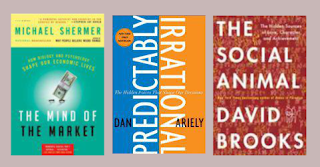There's always another side to learning than the one that's got our attention. This other side will haunt us if we do not honor it in some way. We don't have to be doing both sides all time time, just keep our perspective about the pair. Here's a brief list of some of the two-sided facets of learning. This list could become much longer:
- Getting taught new information AND teaching ourselves how it ties into to what we already know
- Knowing the right answers AND formulating new questions with those answers
- Complying with requirements AND getting the assignment done when, how and why it works for us within those requirements
- Following straightforward procedures AND happening on shortcuts or insights from reworking the draft
- Fixating on the goal with a plan in mind AND exploring different ways to reach that goal
- Formulating hypotheses about what ought to work reliably and testing those theories to prove them true or false
- Sitting passively to read, listen and watch instruction AND moving actively to express oneself and explore more possibilities
- Consciously studying or cramming AND unconsciously assimilating what others expect or how they act
- Learning from external influences AND learning from internal imaginative and insightful processes
- Learning how to explain what something is AND learning how to do what that something can accomplish
When we're absorbed with only one side of learning, we've put ourselves in a powerless position or turned into a monster. Learning is not fun or fulfilling. It's either a struggle we overcome or an endurance contest that overcomes us. We think too much about the problems we're having with learning. We don't see what's missing or what we're doing to ourselves by making learning into a one-sided thing.
When we keep both sides on minds, lots of the previous problems with learning disappear. We are working in our favor instead of against our best interests. We benefit from balancing the two sides in a process that varies from one moment to the next. We follow what is emerging while controlling what we do in response. How we learn doesn't make much sense to others, but they'll be impressed with our results.



